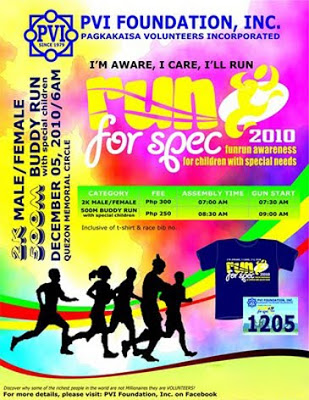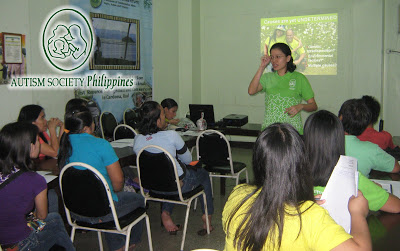
By: Abegail Mendoza, ASP Program Assistant
Autism Society Philippines institutional member, PVI Foundation Inc., will be holding the “RUN4SPEC 2010, a Fun Run Awareness for Children with Special Needs” at QUEZON MEMORIAL CIRCLE (Runnex Area) on December 5, 2010, Sunday at 6am.
According to PVI Auditor, Jenni Lizardo, the foundation has been organizing this event since 2005. Under the heat of the sun, wearing runners attire – shirt, shorts, rubber shoes – holding the hands of children with disabilities, running together, added are cheering squads screaming “motivationals” at the top of their voices.
In line with this, PVI Foundation invites the members of ASP to join in this much awaited event. There will be 30 slots designated for registered...
























